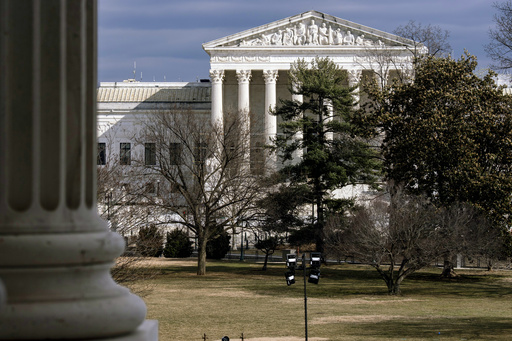In a significant ruling, the Supreme Court annulled the murder conviction and death sentence of Richard Glossip, an Oklahoma man embroiled in a long-standing legal battle over the 1997 death of a motel owner. Glossip, who has consistently proclaimed his innocence, has faced numerous execution attempts, all of which fortunately did not proceed. His wife, Lea, reacted to the outcome as “an answered prayer” and expressed overwhelming gratitude for the decision.
The court determined that Glossip’s trial was unfair due to the prosecutors allowing false testimony from a critical witness, thus violating his constitutional right. A distinctive alliance between Glossip’s defense and Oklahoma’s Republican attorney general emerged, both advocating for a new trial. “Glossip is entitled to a new trial,” stated Justice Sonia Sotomayor, representing the majority.
However, this decision did not go uncontested. Justices Clarence Thomas and Samuel Alito dissented, supporting the conviction and death penalty. Justice Amy Coney Barrett, though agreeing with the majority on some points, suggested that a state appeals court should decide the subsequent steps. Thomas emphasized the family’s interests of the victim, Barry Van Treese, who had hoped to see Glossip executed. Efforts to reach Van Treese’s family for comments remained unanswered at the time.
Glossip’s attorney, Don Knight, hailed the court’s decision, highlighting how prosecutors concealed pivotal evidence. Knight’s statement underscored this as a triumph for fairness in the judiciary system, granting Glossip a fair trial after 27 years of professing innocence.
Currently held at Oklahoma State Penitentiary, Glossip will remain there pending the state’s decision on a retrial, according to Phil Bacharach, a spokesperson for Oklahoma Attorney General Gentner Drummond. Vicki Behenna, the Oklahoma County District Attorney, expressed intentions to review the Supreme Court’s opinion and consult with Drummond on future actions, ruling out the death penalty as an option.
The case against Glossip, initially implicating him in a murder-for-hire plot for the death of his former employer, has seen Glossip denying any involvement while conceding to misleading investigators post-crime. Justin Sneed, a key witness, confessed to murdering Van Treese, alleging Glossip hired him. In exchange for his testimony, Sneed received a life sentence.
In 2023, AG Drummond’s examination of new evidence led him to conclude that Glossip’s trial was unjust. This unearthed evidence indicated prosecutors knew Sneed falsified his testimony regarding his mental health and medication usage. Some lost evidence, potentially exonerating for Glossip, further fueled Drummond’s concerns.
Five justices had previously intervened to delay Glossip’s execution, leading to the highest court’s decision to re-evaluate his trial’s fairness 13 months prior. Justice Neil Gorsuch abstained from the case, likely due to prior involvement in earlier proceedings. Glossip, facing nine set execution dates, has endured the ordeal of “last meals” and life changes under the cloud of imminent execution.
The court encountered two main legal questions: whether the withheld evidence infringed on Glossip’s rights, and whether the state court’s support of his conviction should stand given the state’s changed stance. Justice Barrett, aligning somewhat with the majority, critiqued the appellate decision but remained uncertain of the prosecution’s intentions behind Sneed’s witness account.
Glossip first appeared before the Supreme Court in 2015, successfully halting his execution, though a subsequent 5-4 ruling opposed him by validating Oklahoma’s lethal-injection protocol. Sotomayor and Justice Elena Kagan, supportive of Tuesday’s decision, had dissented previously.
Glossip’s navigation through the legal system began with his first conviction in 1998, resulting in a retrial that another jury later overturned. The ongoing legal intricacies now provide Glossip with a renewed chance to argue his case.




